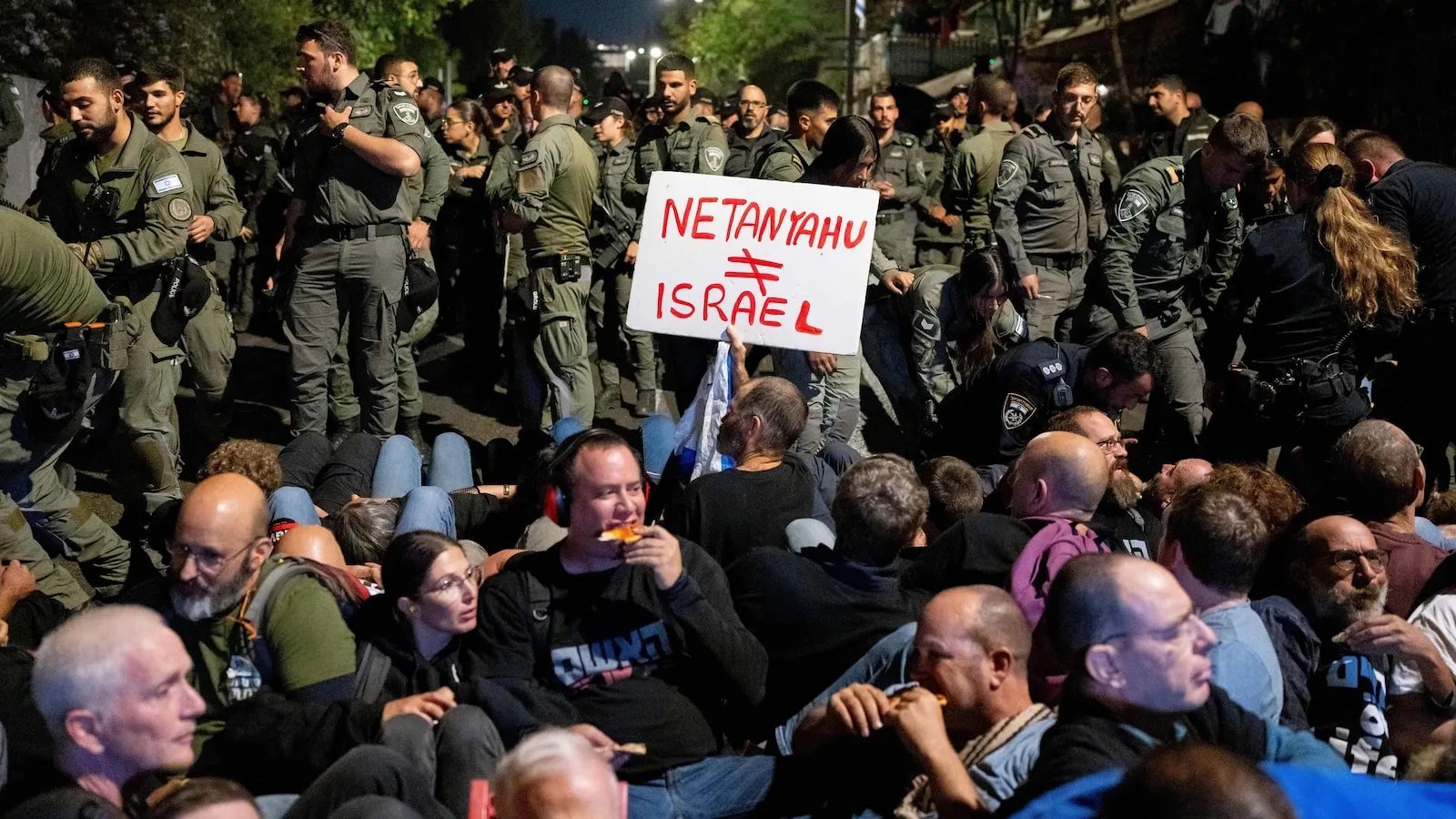Capturing the Struggles of Masafer Yatta
Set in the rugged hills south of Hebron, Masafer Yatta is a region long marked by protests against Israeli control. In 1980, Israel declared Masafer Yatta a “firing zone,” prohibiting the Bedouin Palestinian residents, who had lived there for generations, from occupying their land permanently. For Adra, whose father was a local activist, these struggles are deeply personal. His earliest memory of protest dates back to when he was only five years old.
Following a 2022 court ruling permitting the Israeli army to demolish structures, the residents of Masafer Yatta faced intensified crackdowns. Villagers reported demolitions of homes, schools, and community buildings. Adra began documenting these events, capturing home demolitions, confrontations with Israeli settlers, and the overall impact of the occupation on his community. “Our only tool of resilience became the camera,” he states in the film, emphasizing the power of visual storytelling to convey their struggles.
Political Tensions and a Lack of Distribution
While No Other Land has resonated internationally, especially in Europe and Asia, it has yet to secure a U.S. distributor. After its debut at the Berlin Film Festival, where it won awards, filmmakers faced backlash from politicians in Germany for perceived one-sidedness. Some accused the film of failing to recognize Israeli suffering or mentioning Hamas, with German officials calling their acceptance speeches “shocking” and “unbearably relativistic.” This backlash reflects the broader struggle of political narratives surrounding Israel-Palestine coverage in Western media, as well as the difficulties in bringing complex stories to mainstream audiences.
The filmmakers remain undeterred, expressing that this film is essential for raising awareness about the harsh realities under occupation. Abraham highlights, “We called for equality between Palestinians and Israelis…to speak of the political roots of violence in our land.” Despite receiving death threats, Abraham, the son of Holocaust survivors, insists that criticism of Israeli policies should not be equated with anti-Semitism.
Documenting Amid Conflict: The New Relevance of No Other Land
Filming concluded in October 2022, months before the current Israel-Gaza conflict erupted. However, the recent war adds a sobering layer to the documentary. Following Hamas’s attack on October 7, 2023, which claimed over 1,200 lives in Israel, and Israel’s subsequent response in Gaza, more than 43,000 Palestinians have lost their lives. For the filmmakers, the worsening violence underscores the urgency of No Other Land’s message.
Abraham, a Jewish journalist from southern Israel, remarks on the irony of showcasing the film in air-conditioned theaters while violence rages on in Gaza. Adra, who lost a cousin to settler violence shortly after the conflict began, expresses despair over the seemingly worsening situation. “I never imagined the world would let this happen,” he confides, a sentiment that pervades the film and its portrayal of civilian life amid military control.
A Cinematic Bridge for Coexistence?
Beyond documenting the Israeli occupation, No Other Land stands as a collaborative effort between Palestinian and Israeli filmmakers, aiming to present a united call for peace and equality. Abraham and Adra’s bond highlights the human complexity of the Israeli-Palestinian conflict. Together, they document the arrival of tanks, grapple with the limited media reach of their stories, and share their vision for a peaceful coexistence. However, their partnership isn’t free from tension; one is subject to civilian law, while the other lives under military rule.
This relationship between Adra and Abraham serves as the film’s emotional core, portraying both the shared humanity and the stark divisions within this conflict. Co-director Hamdan Ballal even questions Abraham’s positionality, suggesting that those who enforce Israeli policies may include his friends or family members. For the filmmakers, these unresolved questions of trust and accountability add depth to their narrative, making it a critical commentary on the challenges of reconciliation.
Why American Distributors Remain Wary
With heightened political sensitivity around the Israeli-Palestinian conflict, securing American distribution has proven challenging. The filmmakers believe that political caution and the looming U.S. elections may be affecting decision-making. In recent months, even Amazon’s Union and the Trump-focused Apprentice documentaries struggled to find distribution, illustrating the hesitancy of American distributors to back politically charged content.
New York Magazine critic Bilge Ebiri commented on No Other Land, noting, “Once, American distributors and exhibitors embraced controversy—especially with acclaimed films whose controversy was grounded in humanity. Are companies retreating from these conversations due to budget, cowardice, or political opposition?” The filmmakers echo these concerns, urging American distributors to support diverse voices like Adra’s, whose film challenges mainstream narratives about Palestine.
As No Other Land continues its global journey, Adra and Abraham hope their work will inspire dialogue about the need for peace and justice. They aim to provide a compelling visual record of the human cost of occupation, inviting viewers worldwide to witness a reality often overlooked in mainstream media. Through this film, they strive to foster a nuanced understanding of a complex issue, offering a glimpse of what coexistence could look like, even amid the harshest of circumstances.

